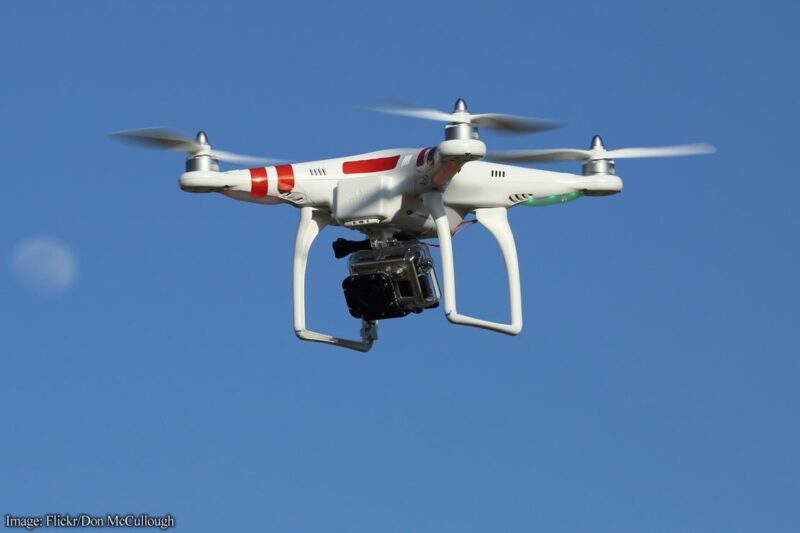Police Drones Could Turn America Into a Surveillance State


This piece was originally in the Wall Street Journal
Picture this: Youâre hanging out on your stoop, and a drone appears overhead. You ask yourself, âIs that the police?â It could be a delivery drone, or belong to the local utility or a kid down the street. Your police department is flying drones more and moreâand you know they have powerful zoom lenses. You ask yourself: âDo I look suspicious?â
This situation could become reality soon for Americans, because the U.S. is on the cusp of an explosion in the use of drones by law enforcement. The country isnât prepared.
More than 1,400 police departments in America already use drones, but Federal Aviation Administration rules generally prohibit operators from flying these craft beyond their visual line of sight, sharply restricting the purposes for which they can be used. Among other things, these laws help keep drones from being used for suspicionless surveillance.
A dozen or so police departments, however, have gone through an extensive and time-consuming process to secure a special FAA exemption from this banâand more have applied. And in the next couple of years, the FAA is expected to issue new rules allowing police departments and others to carry out flights beyond the visual line of sight as long as they follow certain safety rules, opening up the skies to commercial flights such as delivery drones as well as expanded police operations.
Driving police interest in such flights is a new concept called drones-as-first-responder programs, in which the police send flying video cameras to the location of every 911 call. Often arriving well before officers, the drones give the police an aerial view of what is going on. Police say this tool is valuable in serious emergencies and even helps prevent law-enforcement encounters. Drones could establish, for example, that a man reported to be waving a gun is actually holding a gun-shaped cigarette lighterâall before officers arrive on the scene.
We shouldnât object to reasonable, bounded uses of drones, but the vast majority of 911 calls arenât for serious emergencies. They are for mental illness, wellness checks and reports about loud music or suspicious persons. If every 911 call results in a drone flight, the sheer number of flying police video cameras with powerful lenses would take over American communities.
And drones-as-first-responder programs may quickly expand. With flights allowed beyond the line of sight, we could also see drones used to conduct prolonged suspect surveillance, or to watch places where police expect crime will happen. That might escalate into routine drone patrols.
The result would be nightmarish levels of surveillance. Our courts are now grappling with the constitutional limits of surveillance in public places, and a federal appeals court struck down a citywide aerial surveillance program in Baltimore in 2021. But itâs not clear where the courts will draw the line.
Before drones become a regular tool for police departments, we must implement safeguards and accountability measures. There should be a moratorium on drone 911 responder programsâcurrently active in only a couple of dozen cities and townsâuntil the U.S. learns more about how those programs turn out. Will they improve policing and reduce fraught interactions as proponents suggest? Or will they become another weapon amplifying the war on drugs, overpolicing and the targeting of vulnerable communities?
The communities that allow their police departments to adopt such programs must enact laws to contain them. That means creating a standard that police should use drones only in true emergencies. The standard also should impose privacy protections limiting the handling of video data and require transparency regarding where and when drones are flying, precisely what sensors they carry, and what department policies have been adopted surrounding their use.
Many people feel self-conscious and uncomfortable when a police car is driving behind them, or when a uniformed officer is watching them. You wouldnât want to experience that feeling from the air while sitting in your own backyard. Drones can be a useful law-enforcement tool in some circumstances, but we still must protect our civil rights and liberties. We shouldnât have to feel weâre being watched whenever we see the sky.



